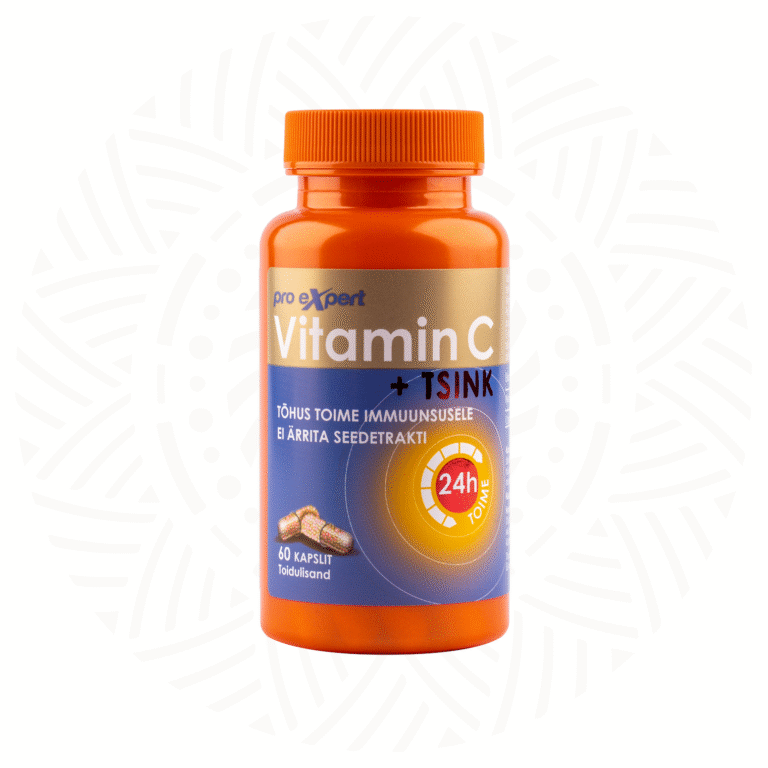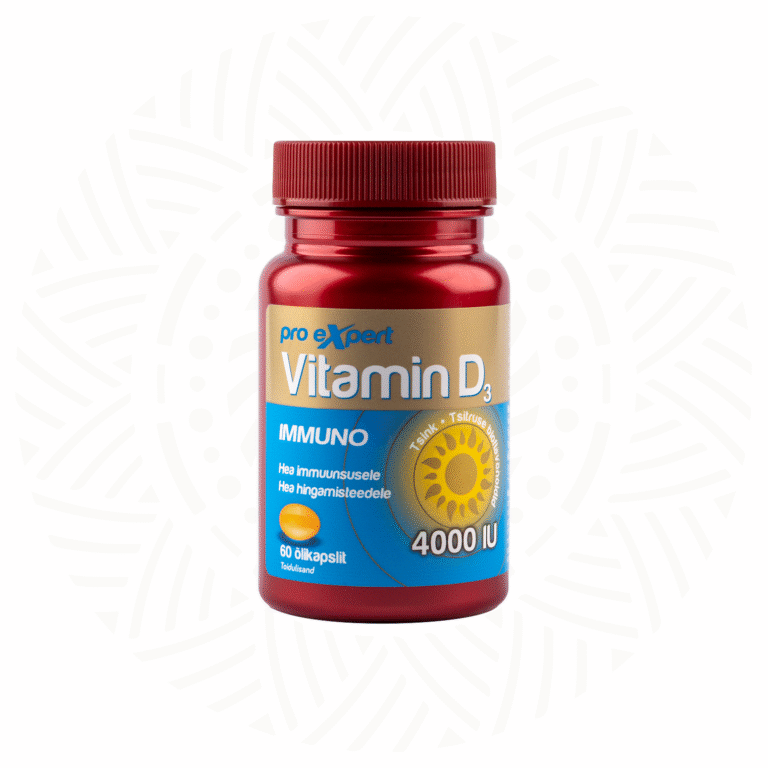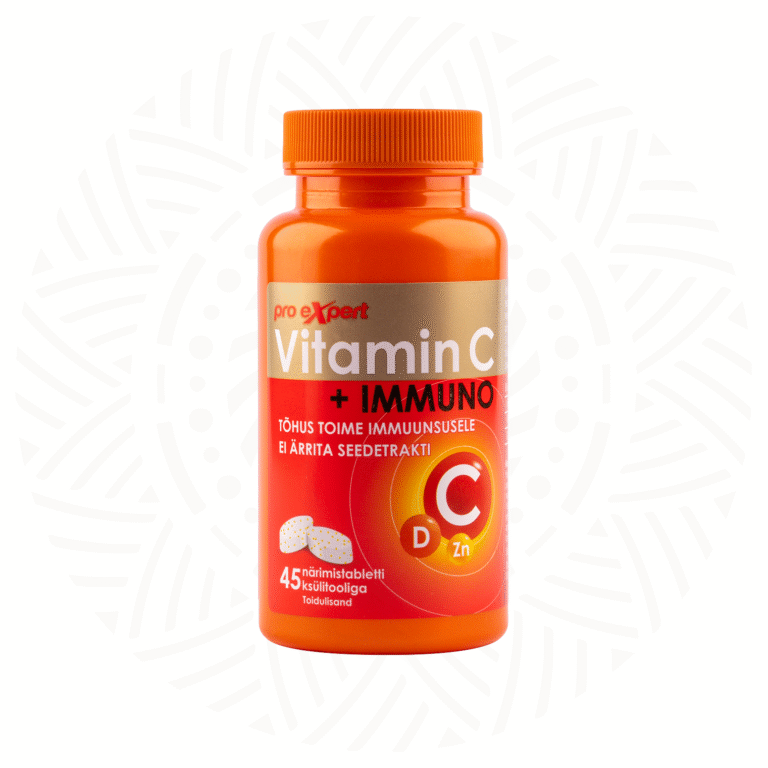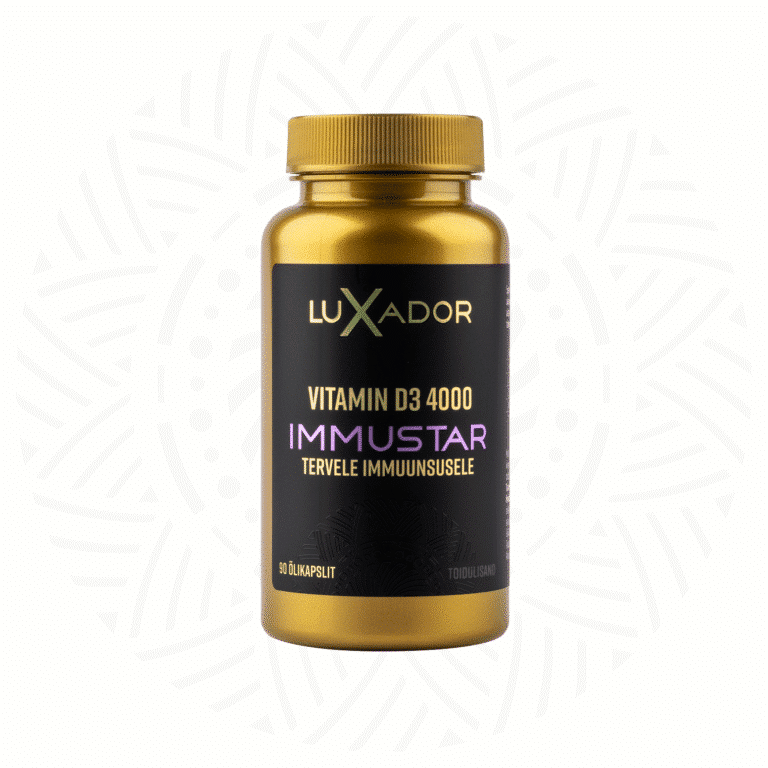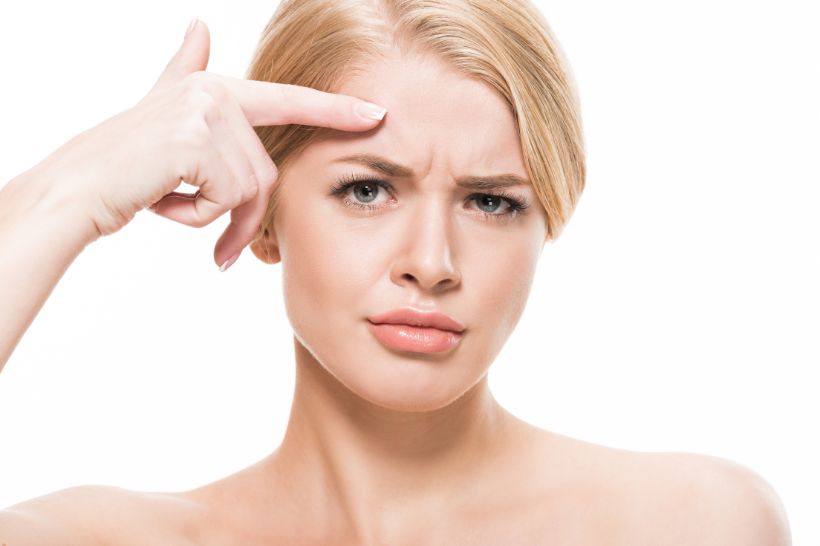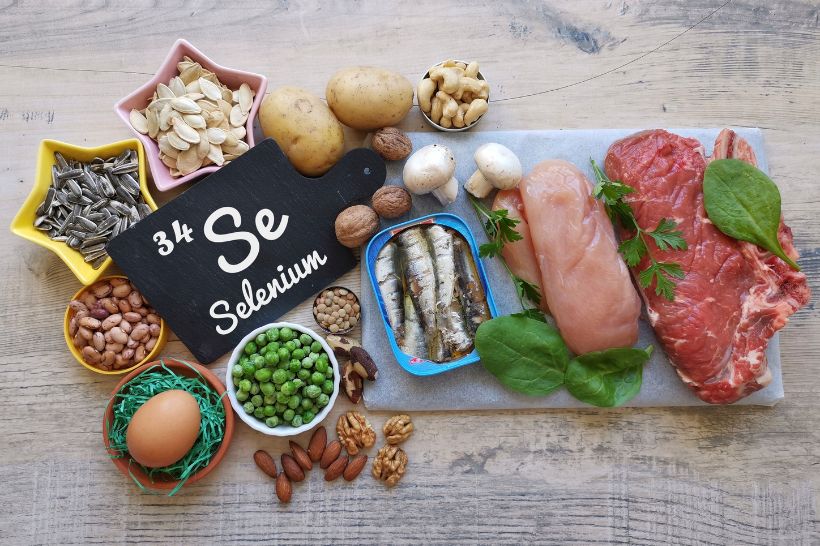Zinc is an essential mineral that ensures the development of cells in the body, keeps the skin healthy, and helps wounds heal. Zinc is an important component of the immune system, helping to fight infections, including colds. Since our body does not naturally produce zinc, it must be obtained through food or supplements.
Next, you will learn how to take zinc as a supplement to get the maximum benefit for your health?
What is the daily zinc requirement?
The need for zinc increases during growth, illness, stress, physical exertion, pregnancy, and breastfeeding when there is active tissue renewal. The recommended daily prophylactic doses of zinc are:
- Children aged 1–3 years: 7 mg of zinc per day
- Children aged 4–6 years: 10 mg of zinc per day
- Children aged 7–10 years: 13 mg of zinc per day
- Children aged 11–14 years: 18 mg of zinc per day
- Teens aged 15–17 years: 22 mg of zinc per day
- Adults: 25 mg of zinc per day.
The safe long-term therapeutic dose of zinc for adults is 25 – 50 mg per day. The benefits of zinc in therapeutic doses are revealed in healing processes, fighting inflammation, accelerating recovery, and treating skin and infectious diseases. The short-term therapeutic dose of zinc is 75 mg per day.
What if the available zinc amount is too low?
Zinc deficiency can manifest as various signs and symptoms, ranging from mild to very severe cases. It is important to know that zinc deficiency can be effectively and easily corrected with zinc-containing supplements.
Increased zinc needs are common in growing children, pregnant women, breastfeeding mothers, vegetarians, and the elderly. Symptoms of zinc deficiency include:
- more frequent colds and flu
- slower wound healing
- reduced sense of taste and smell
- skin problems (acne, eczema, psoriasis)
- hair loss and premature graying
- scalp dandruff
- lower male fertility
What causes zinc deficiency?
Zinc deficiency can be caused by several factors, including:
- Poor nutrition: zinc deficiency can occur from excessive consumption of plant-based, salty, or sugary foods.
- Certain diseases: some diseases, such as Crohn’s disease, ulcerative colitis, and celiac disease, can prevent zinc absorption.
- Certain medications: some medications, such as antacids and oral diabetes medications, can reduce zinc absorption.
- Age: zinc absorption decreases with age.
What if the available zinc amount is too high?
Long-term excessive zinc intake can cause copper deficiency because high doses of zinc can interfere with copper absorption in the body. This, in turn, can lead to several health problems, such as anemia, heart disease, and neurological disorders.
It is difficult to overdose on zinc if it is taken in the prescribed amounts. Long-term zinc intake above 100 mg per day can cause:
- nausea
- vomiting
- abdominal pain
- diarrhea
- other sudden changes in the intestines.
What promotes zinc absorption?
Although zinc is absorbed independently, several factors promote the absorption of this essential mineral, including:
- Protein-rich foods: zinc binds easily with proteins. Therefore, protein-rich foods such as meat, fish, dairy, and eggs promote zinc absorption.
- Vitamins A, C, and E: these help with zinc absorption in the digestive tract.
- Calcium and phosphorus: they aid in zinc absorption in the digestive tract.
What reduces zinc absorption?
- Phytates: Phytates are compounds found in plants that bind zinc and prevent its absorption. Zinc absorption can be improved by reducing the content of phytates in food. Therefore, the daily zinc requirement for vegetarians is approximately a quarter higher than for people who eat a mixed diet.
- Gastrointestinal health: the health of the digestive system is important for better zinc absorption, as gastrointestinal diseases reduce the bioavailability of zinc.
- Alcohol: Excessive alcohol consumption reduces zinc absorption in the digestive tract and causes zinc deficiency. Therefore, it is recommended to limit or avoid alcohol consumption if there is a zinc deficiency.
- Simultaneous intake of zinc and iron: The simultaneous intake of both minerals negatively affects the body’s ability to absorb zinc. Leave at least a couple of hours between taking both minerals.
- High doses of calcium: Taking high doses of calcium can reduce zinc absorption in the body.
When to take zinc?
Zinc can be taken regardless of the time of day, but for better absorption, it is recommended to take it one hour before meals or two hours after meals. If nausea or stomach irritation occurs when taken on an empty stomach, take zinc with low-fiber food.
How to take zinc if you want to strengthen your immune system?
Zinc is important for immune system function. It helps fight infections by stimulating the production and function of immune cells. If you take zinc for five months, the risk of contracting viral diseases decreases by at least 16%. Therefore, it is worth considering taking zinc supplements before the virus season.
How to take zinc in case of colds?
Zinc is recommended to be taken as soon as you feel like you might be getting sick – sore throat and runny nose. Zinc effectively helps fight viruses. Studies confirm that zinc intake shortens the duration of viral illnesses.
ENT specialists recommend taking 75 mg of zinc per day starting from the onset of cold symptoms until the cold is gone. Zinc immediately starts supporting the mucous membranes and reduces the duration of the cold. For the best results, combine zinc supplements with Vitamin C and D.
How to take zinc for acne?
If you feel like you’ve tried everything for acne, consider taking zinc. Zinc has antibacterial properties, reduces inflammation, inhibits bacterial growth, and controls sebaceous gland activity. It also helps reduce the formation of acne scars. The typical dose for acne treatment is 25 – 50 mg of zinc per day, but the dose may vary based on age, acne severity, and doctor’s recommendation.
It is important to remember that taking zinc may not completely cure acne, but it can help reduce its severity and speed up recovery.
How to take zinc for slowly healing wounds?
Slow healing of cuts and wounds is a sign of zinc deficiency. Zinc has anti-inflammatory properties and helps wounds heal faster. Additionally, zinc stimulates collagen production, which is necessary for wound closure. Therefore, regular zinc intake is important for diabetics as well, as their wounds take significantly longer to heal.
If you want to speed up wound healing, prevent inflammation, and scarring, the usual adult dose is 25 – 50 mg of zinc per day. The therapeutic dose is up to 75 mg of zinc per day. The dose may vary depending on age and doctor’s recommendation.
How to take zinc in older age?
With age, zinc absorption in the body decreases, leading to zinc deficiency. Older adults also do not consume enough zinc-rich foods such as seafood, meat, nuts, and seeds. Zinc is important in older age because it helps protect cells from damage and slows down the signs of aging.
Taking zinc supplements in older age is a good way to prevent zinc deficiency in the body. Studies have shown that taking a 25 mg zinc supplement daily for 6 months improves immune function in older adults. The daily safe dose for maintaining zinc levels is 25 mg.
How to take zinc to maintain good eye health?
Did you know that we get about 90% of information about our surroundings through our eyes? This is why taking care of eye health is especially important throughout life.
Zinc is extremely necessary for good eye health because it helps vitamin A absorb and produce a pigment called melanin. Melanin protects the eyes from ultraviolet radiation. Additionally, zinc is found in the retina, which improves vision in low light and prevents macular degeneration. Zinc also has anti-inflammatory properties, which can help reduce symptoms of eye inflammations.
Studies have shown that if zinc is taken with antioxidants like vitamins C, A, and E, it can reduce macular degeneration and slow down vision loss in older age. Therefore, zinc plays an important role in maintaining sharp vision.
How to take zinc for hair health and scalp dandruff?
Zinc is an important mineral needed for hair growth and health. Zinc helps produce keratin, a protein that forms the structure of hair. Zinc also helps regulate sebum production, which can help reduce dandruff on the scalp.
To improve hair health and scalp dandruff, take zinc as a supplement. The recommended dosage of zinc supplements for hair health and scalp dandruff is 15-30 mg per day. For best results, combine zinc with vitamin C.
The duration of zinc supplementation for hair health and scalp dandruff depends on individual factors, such as the severity of hair loss or dandruff and the level of zinc deficiency in the body.
In general, it is recommended to take zinc supplements for at least 3 months to see results. If hair loss or dandruff improves, you can continue taking zinc supplements to maintain the results.
If hair loss or dandruff does not improve after 3 months of taking zinc supplements, it is important to consult with your doctor.
How long should zinc be taken?
The duration of zinc supplementation depends on age, health status, and dietary habits. Since zinc deficiency can cause several serious health problems, it is important to ensure adequate zinc intake in your daily diet. If your diet does not contain enough zinc, take zinc-containing supplements regularly. The duration of the treatment course is determined by your doctor.
Which zinc supplement should you choose?
Zinc can be found in various forms and types in supplements – from tablets to capsules. It can also be found combined with vitamins and minerals, such as vitamin C zinc tablets and capsules, and zinc and selenium. Zinc lozenges, liquid zinc, and zinc spray are also available. When making the right decision, it is helpful to consult with a pharmacist.
However, not all zinc supplements are equally effective. Zinc acetate, zinc citrate, and zinc diglycinate have good bioavailability. Zinc bioavailability shows how much zinc is absorbed from the digestive tract into the bloodstream.
| Zinc form | Bioavailability |
| Zinc sulfate | 20-30% |
| Zinc gluconate | 30-40% |
| Zinc oxide | 30-40% |
| Zinc picolinate | 35-45% |
| Zinc lactate | 35-45% |
| Zinc citrate | 40-50% |
| Zinc diglycinate | 50-60% |
Use zinc wisely and stay healthy!
